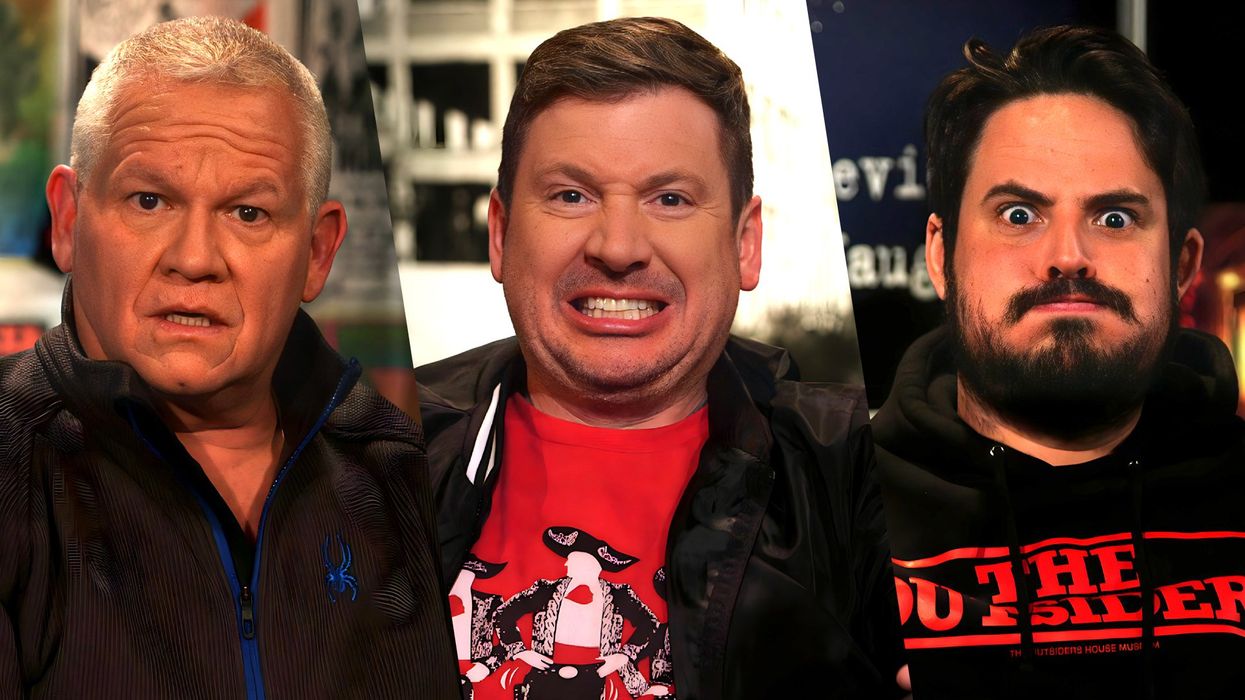
© 2024 Blaze Media LLC. All rights reserved.
New Study Offers Ammunition for All Those Who Have Warned You About Watching Shows Like 'The Bachelor' — How Romance Shows Can Skew Your Perceptions
June 24, 2014
"Teaching us what sorts of beliefs we should have about romantic relationships."
Shows like “The Bachelor," "Millionaire Matchmaker" and "How I Met Your Mother" along with romance movies can skew viewers ideas of what romance should be like in real life, according to a new study.
Researchers from the University of Michigan sought to investigate how different genres of romantic shows and movies affect idealistic romantic beliefs. More than 600 college students took a survey that assessed their exposure to different genres against how they perceive the actual reality of shows on TV and their thoughts on romantic ideals.
 Josh Radnor as Ted, left, and Cristin Milioti as Tracy in a scene from the finale of "How I Met Your Mother," that aired earlier this year. A study from the University of Michigan found those who watched more romantic sitcoms compared to other romantic genres were less likely to hold to idealistic views of love. (AP/CBS/Ron P. Jaffe)
Josh Radnor as Ted, left, and Cristin Milioti as Tracy in a scene from the finale of "How I Met Your Mother," that aired earlier this year. A study from the University of Michigan found those who watched more romantic sitcoms compared to other romantic genres were less likely to hold to idealistic views of love. (AP/CBS/Ron P. Jaffe)
According to the study abstract published by the journal Psychology of Popular Media Culture, participants who watched romantic sitcoms were less likely to endorse the "general ideology of romanticism," while increased viewership of romantic-themed movies was linked with a tendency to believe that "love finds a way." Then there's marriage-themed reality TV: This lead to idealized beliefs of love.
What does all this mean? Basically, people who watch "The Bachelor," for example, are more likely to believe in "love at first sight," while those who watched shows like "How I Met Your Mother" are more likely to have a more cynical view of romance and less likely to believe in a "one and only."
"It is possible that frequent exposure to romance and courtship in this idealized form could lead viewers to adopt equally idealized notions about relationships in the real world," Julia Lippman, lead author of the study and postdoctoral fellow at the university, said in a statement.
Like it or not, such shows and movies, Lippman said "may be teaching us what sorts of beliefs we should have about romantic relationships."
(H/T: Ann Arbor News)
—
Featured image via Shutterstock.
Want to leave a tip?
We answer to you. Help keep our content free of advertisers and big tech censorship by leaving a tip today.
Want to join the conversation?
Already a subscriber?
more stories
Sign up for the Blaze newsletter
By signing up, you agree to our Privacy Policy and Terms of Use, and agree to receive content that may sometimes include advertisements. You may opt out at any time.
© 2024 Blaze Media LLC. All rights reserved.
Get the stories that matter most delivered directly to your inbox.
By signing up, you agree to our Privacy Policy and Terms of Use, and agree to receive content that may sometimes include advertisements. You may opt out at any time.


